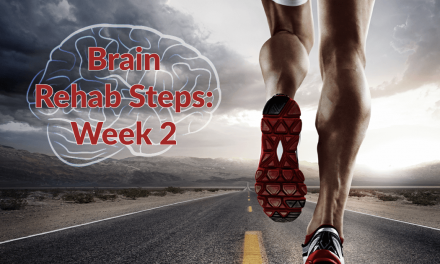Your baby has finally arrived! Everything has become very real, but there is something seemingly off with you. You just don’t feel right. You’re emotionally and physically drained from pregnancy, labor, and delivery. Now you’re dealing with sleep deprivation as your little one is trying to figure out days and nights and requires constant feeding and nurturing. You’re figuring out how to nurse, are changing diapers around the clock, learning what your baby’s cries represent and are constantly hungry yourself. Becoming a new mom can be hard at first. Did you know that as many as 1 in 5 new mothers will suffer from severe depression or anxiety after giving birth? A woman is significantly more likely to suffer from one of these conditions during her first year as a mother than at any other time in her life. (1)
Hormones
There are several factors that can contribute to postpartum depression. The hormonal roller coaster after giving birth is not something anyone can you prepare you for and the degree is different from one woman to the next. Did you know Estrogen levels are nearly 100 times what they are during your period?! These levels dramatically decrease post-delivery, especially within the first 24 hours. If you are breastfeeding, these levels can fall even further. You might even experience hot flashes or vaginal dryness as a result. Dr. Allison Hill, board-certified OB/GYN in LA compare breastfeeding hormones to that of a woman in menopause when she explains the hormonal shift after pregnancy to her patients. (2)
Progesterone levels increase as well during pregnancy and do not return to normal until your normal menstrual cycle returns. The return of your cycle varies greatly. For those of you not breastfeeding, it could return within 6-8 weeks. Those of you who are breastfeeding may not have it return until you are done breastfeeding.
Prolactin increases up to 20 times more than pre-pregnancy levels and remains high until breastfeeding ends. (2) This hormone is necessary for milk production. These levels fluctuate during the day and are the highest at night and times of stress.
You may even notice when your baby cries that your milk lets down. This is due to the hormone Oxytocin, which helps you relax and helped with pain during labor. This hormone is known as the “bonding hormone” and during the first weeks of lactation is still being tailored to respond to the sensation of your baby nursing. (2) Frequent nursing will fix this.
A healthy body will regulate hormones more efficiently. Helping replenish your nutritional losses as a result of pregnancy, delivery, and lactation as well as reducing the exposures to toxic elements that you have control over can reduce your risk of experiencing periods of postpartum depression. Here are some pointers for helping you reduce your exposure to harmful toxic elements:
- Buy only organic based whole foods whenever possible. If on a strict budget, get familiar with the “Dirty Dozen” and the “Clean Fifteen” guides for buying produce. Purchase hormone-free meats when possible. Make sure you wash your food well to rid as much of the pesticides as possible.
- Avoid using all pesticides, herbicides, and fungicides around your house. Ask a plant nursery on safe and effective alternatives…
- Have a good water filtration system for your home, preferably a whole-house unit.
- Avoid plastics. Use glass or ceramics whenever possible to store food.
- Do not microwave foods whenever possible. If necessary, do not microwave in plastic containers and especially avoid using plastic wrap to cover food for microwaving.
- Avoid fabric softeners. They put petrochemicals right on your skin.
- Use clean laundry, dish detergent and home cleaners with fewer chemicals.
- Avoid blue cohosh, vitex, saw palmetto berry, lavender, tea tree oil, licorice, hops, Rhodiola roseroot, black cohosh, dong Quai, red clover blossom, and motherwort leaf as they all increase levels of estrogen.
- Strictly avoid all soy and soy products.
Physical Changes
Hormones are not always to blame. There is a significant amount of pressure put on moms to quickly “bounce back” after having their baby. There is an unwritten expectation to get back to pre-baby weight immediately. It’s recommended for women to gain approximately 25lbs during pregnancy depending on initial health and weight status of the expectant mom. Many women are unhappy with their body post-pregnancy due to the presence of stretch marks, a belly bulge, wider hips, and breast changes. A TODAY Moms survey of 3,000 new moms found almost two-thirds of women say they worry their partner doesn’t like their body post-baby. (3) It goes without saying, we live in a society of judgment, lack of compassion and a culture that expects women to maintain their physique.
Returning to exercise isn’t always easy. Waiting 6-8 weeks post-delivery is the typical recommendation. However, if you had a C-section, you may take longer to recover. For some, it can take months to recover and although your doctor may “clear you for exercise” be certain this means light and gentle exercise. The best form of exercise, to begin with, is going outside with your baby for a walk in the fresh air and sunshine. A 10-minute walk is enough to create a hormone shift in the body, improve mood and outlook on life and simply help you feel better. Try for at least one walk per day initially and change up your scenery to keep it interesting for you and your baby as he/she grows. Take the stroller or use a carrier, just be sure to use your carrier properly and be aware of your footing on rooted and rocky trails.
I do not recommend “dieting” right after giving birth, especially if you’re nursing. Your body needs calories to keep up with the demand of your baby. Did you know your body can burn an extra 500 calories per day just making milk? My recommendation is to eat as many clean, whole foods as necessary to feel satisfied. Simply, eat when you’re hungry and stop when you’re full. Stick to eating foods that are high in good fats, moderate in protein and lower in carbohydrates to adequately fuel your body, keeping you satisfied while keeping up with the demands of your baby and allowing you to lose the weight gained during pregnancy. Have healthy snacks on hand like nuts, guacamole, nut butter with celery, vegetables, and hummus, etc. Drink plenty of water. Consuming between 2-3 quarts is recommended and it will keep you hydrated if you’re nursing.
Difficulties of Nursing
The number one discussion in postpartum depression groups has involved breastfeeding. (4) Breastfeeding for some women can increase their anxiety due to the pain they’re experiencing, worrying if the baby is getting enough milk, worrying about having enough milk, or just being concerned about what others will think if they stop. The rate has been shown to be as high as 92% of mothers reporting breastfeeding challenges during their first week postpartum. (4) Although breastfeeding is instinctive, there is a learning curve for both mom and baby. It can take weeks before you and your baby master the skill. Thankfully there is help out there for you with numerous lactation consultants and support groups. At the end of the day though if it’s not working out, don’t feel bad about stopping either. You have to do what is best for you and your baby. Stressing about the process and not being successful with it is not going to help you or your baby.
New moms are returning to work after giving birth much sooner than ever. The U.S. is the only major country that offers no paid time off for new moms, placing a terrible burden on these women, their families, and the country. A CDC report shows only 10% of moms who work full-time are still breastfeeding their baby at 6 months. (5) Here are some things you can do prior to returning to work to help ensure baby gets the benefits of mom’s breast-milk as long as possible:
- Get a hands-free double breast pump. This is the most time-saving and allows you to still use your hands while pumping. Speak with your insurance company for what specific types of breastfeeding equipment are covered under your plan. If you travel a lot for work, purchase a battery for your pump.
- Purchase a travel-friendly cooler and ice pack to keep the milk you pump fresh. (Expressed milk can stay good for up to 8 hours if you don’t have a cooler on hand.)
- Have a discussion with your boss or department at work to set up a time and place for you to pump while at work to maintain your supply during missed feedings while you are apart from your baby.
- Pump and store before returning to work. Pick a couple of times per day to pump after feeding your baby. Store this milk in the freezer so you have a nice stash before returning to work. Date the bags. Frozen breast-milk is good for 3-6 months. Once thawed, be sure the baby consumes within 24 hours or discard.
What Nutrients Are You Missing?
You may have been deficient in vitamin D during pregnancy and never knew it if you weren’t tested. Most prenatal vitamins do not have enough vitamin D in them to achieve optimal status at serum levels. A recent study published in the journal Archives of Women’s Mental Health suggests that low levels of vitamin D in mothers during pregnancy increases the risk for postnatal depressive symptoms. (7) Supplementing with vitamin D is low-cost and safe for all pregnant women.
Is your HDL, “good”, cholesterol high enough? Sufficient levels of HDL cholesterol is imperative for hormone production and is vital for vitamin D physiology. In a well-known study published by the Journal of Psychiatric Research, the authors found that postnatal participants with depressive symptoms had lower serum HDL concentrations. (8) This type of cholesterol can be improved by taking a supplement rich in Omega-3 such as fish oil. Consuming more avocados, nuts, fish, olive oil and coconut oil will also be helpful.
Vitamin D and HDL cholesterol levels are just two of the many missing links that may be contributing to depressive symptoms after giving birth. You are experiencing a lot of feelings all at once during this time in your life. Whether you’re a new mom or considered a veteran, every child is different and you will face different obstacles to overcome. Let’s take the guesswork out of your health. We will test a comprehensive panel in the blood and check your toxic element status via your hair so you can be sure you are doing everything you can for you and your baby. Majority of supplements are safe to take during and after pregnancy, even if you are nursing. If you test first, you’ll take the guesswork out and save a considerable amount of time and money. We can tailor a detailed program for you to follow that can optimize levels in the blood to avoid and/or improve depressive disorders. Depression should not be taken lightly. Don’t be afraid to reach out for help during these tough times.
You can do more when it comes to prevention. We have been recommending for many years of annual or semi-annual blood tests. They can catch problems before they become a full-blown crisis. It’s just as important for a woman to get tested prior to conception, during pregnancy and postpartum to determine any nutritional imbalances and toxicities that could affect the outcome of each state of fertility.
Contact our office (303-790-7650) for further details because it is NEVER too early in life to work towards prevention or visit www.corehealthlabs.com for more details.









